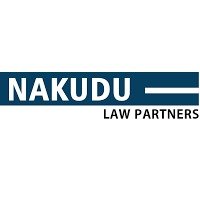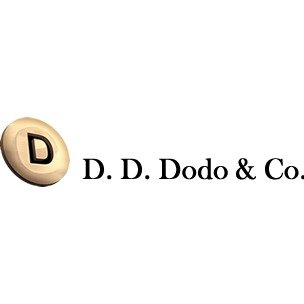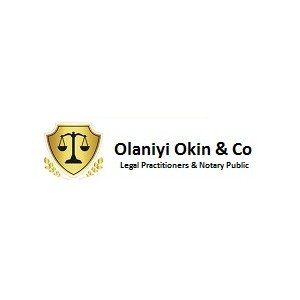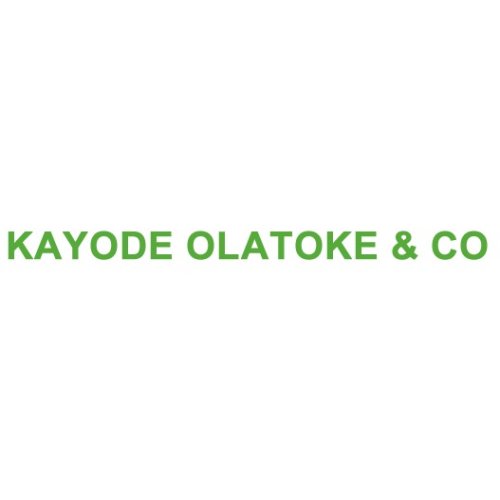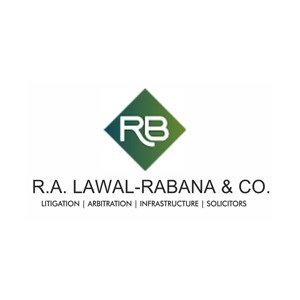Best Sustainable Finance Lawyers in Nigeria
Share your needs with us, get contacted by law firms.
Free. Takes 2 min.
Or refine your search by selecting a city:
List of the best lawyers in Nigeria
Legal guides written by Adeola Oyinlade & Co:
- Procedure and Requirements for Work Permit and Visas in Nigeria
- The Step-By-Step Procedure of How to Apply for Microfinance Bank License Online in Nigeria
- How to Ensure the Smooth Recognition and Enforcement of Foreign Judgments in Nigeria
About Sustainable Finance Law in Nigeria
Sustainable finance is a field that integrates environmental, social, and governance (ESG) considerations into financial decision-making processes. In Nigeria, sustainable finance has gained momentum due to increasing awareness of climate change, social responsibility, and the need for responsible investment practices. The Nigerian government, regulatory agencies, and financial institutions have started implementing policies and frameworks to promote sustainable financial activities. This includes regulations around green bonds, climate finance, socially responsible investing, and the integration of ESG standards into business operations. The aim is to align Nigeria's financial sector with global best practices in sustainability, helping to foster economic growth while protecting the environment and promoting social equity.
Why You May Need a Lawyer
Navigating the field of sustainable finance in Nigeria can be complex due to evolving regulations, the interplay between international standards and local requirements, and the technical nature of sustainable investment products. Common situations where legal assistance may be necessary include:
- Advising businesses or investors on compliance with ESG reporting obligations
- Structuring and issuing green or sustainability-linked bonds
- Helping financial institutions develop internal ESG policies
- Resolving disputes concerning sustainability standards or misrepresentation
- Assisting foreign investors with local regulatory compliance for sustainable investments
- Ensuring eligibility for government incentives related to sustainability
- Facilitating due diligence in sustainable project financing
A lawyer with expertise in sustainable finance law ensures that you understand your obligations, take advantage of available opportunities, and avoid costly errors or penalties.
Local Laws Overview
Several laws and regulations impact sustainable finance in Nigeria. Some of the key aspects include:
- Securities and Exchange Commission (SEC) Green Bond Guidelines - These set standards for issuing green bonds aimed at financing environmentally beneficial projects.
- Central Bank of Nigeria (CBN) Sustainable Banking Principles - The CBN requires banks to integrate environmental and social principles into their business operations and lending practices.
- Nigerian Code of Corporate Governance - Encourages listed companies to adopt best practices in ESG management and reporting.
- Nationally Determined Contributions (NDCs) Under the Paris Agreement - Nigeria's commitments under international climate agreements influence local policies and incentives for sustainable finance.
- Environmental Impact Assessment Act - Requires financial institutions to ensure that funded projects are compliant with environmental standards.
Additionally, Nigeria has joined various global initiatives, such as the United Nations Principles for Responsible Banking, boosting the push for sustainable financial practices. Legal requirements and incentives are subject to periodic updates, so it is crucial to consult up-to-date sources or a qualified lawyer.
Frequently Asked Questions
What is sustainable finance?
Sustainable finance refers to financial services and investments that consider environmental, social, and governance (ESG) criteria to promote responsible economic growth and reduce negative impacts on society and the environment.
Are there incentives for sustainable investments in Nigeria?
Yes, the Nigerian government and some regulatory bodies provide incentives such as tax breaks or subsidies for green projects and sustainable businesses, particularly in the areas of renewable energy and climate-friendly initiatives.
What is a green bond, and how does it work in Nigeria?
A green bond is a fixed-income financial instrument that raises funds for environmentally beneficial projects. In Nigeria, green bonds can be issued under the SEC Green Bond Guidelines and are used to finance projects like renewable energy, waste management, and sustainable agriculture.
Do companies in Nigeria have to report on ESG practices?
Certain listed companies and financial institutions are required by regulatory bodies such as the CBN and SEC to disclose their ESG policies, risks, and performance as part of their annual reporting obligations.
Can foreign investors participate in Nigeria’s sustainable finance market?
Yes, foreign investors can participate by investing in green bonds, funding sustainable projects, or partnering with local companies, provided they comply with Nigerian regulations.
What penalties exist for non-compliance with sustainable finance regulations?
Penalties can range from fines and suspension of licenses to reputational damage and removal from securities listings. Specific consequences depend on the regulation and the nature of the violation.
How can an organization ensure it is compliant with sustainable finance laws?
Organizations should seek professional legal advice, develop robust ESG policies, undergo regular compliance audits, and stay current with regulatory developments relating to sustainability.
What sectors attract the most sustainable finance in Nigeria?
Energy (especially renewables), agriculture, water and waste management, and infrastructure development are sectors that commonly attract sustainable finance investments.
Where can individuals or businesses access sustainable finance products?
Banks, investment firms, and the Nigerian Stock Exchange offer various sustainable finance products, including green bonds, ESG funds, and loans for environmentally friendly projects.
Is legal advice mandatory for participating in sustainable finance activities?
While not always mandatory, legal advice is strongly recommended due to the complex regulatory and contractual environment surrounding sustainable finance in Nigeria.
Additional Resources
- Securities and Exchange Commission (SEC) Nigeria
- Central Bank of Nigeria (CBN)
- Nigerian Stock Exchange (NGX) - Sustainable Finance Segment
- Nigerian Investment Promotion Commission (NIPC)
- Federal Ministry of Environment
- Nigeria Climate Innovation Center (NCIC)
- Nigerian Economic Summit Group (NESG)
- Non-governmental organizations focusing on ESG and sustainable development, such as the Clean Technology Hub
Next Steps
If you require legal assistance in the field of sustainable finance in Nigeria, here are practical steps you can take:
- Clarify your objectives, such as pursuing a green bond issuance, sustainable investment, or ensuring compliance with new ESG regulations
- Document relevant information about your business, project, or transaction
- Consult with a lawyer or a law firm experienced in sustainable finance or ESG matters in Nigeria
- Review legal requirements and obtain guidance specific to your industry or business goals
- Stay informed about changes in local and international sustainable finance laws
- Utilize recommended resources or engage with government agencies for additional support
Taking legal advice early can help you efficiently navigate Nigeria's sustainable finance landscape, avoid pitfalls, and unlock opportunities for growth and compliance.
Lawzana helps you find the best lawyers and law firms in Nigeria through a curated and pre-screened list of qualified legal professionals. Our platform offers rankings and detailed profiles of attorneys and law firms, allowing you to compare based on practice areas, including Sustainable Finance, experience, and client feedback.
Each profile includes a description of the firm's areas of practice, client reviews, team members and partners, year of establishment, spoken languages, office locations, contact information, social media presence, and any published articles or resources. Most firms on our platform speak English and are experienced in both local and international legal matters.
Get a quote from top-rated law firms in Nigeria — quickly, securely, and without unnecessary hassle.
Disclaimer:
The information provided on this page is for general informational purposes only and does not constitute legal advice. While we strive to ensure the accuracy and relevance of the content, legal information may change over time, and interpretations of the law can vary. You should always consult with a qualified legal professional for advice specific to your situation.
We disclaim all liability for actions taken or not taken based on the content of this page. If you believe any information is incorrect or outdated, please contact us, and we will review and update it where appropriate.
Browse sustainable finance law firms by city in Nigeria
Refine your search by selecting a city.








